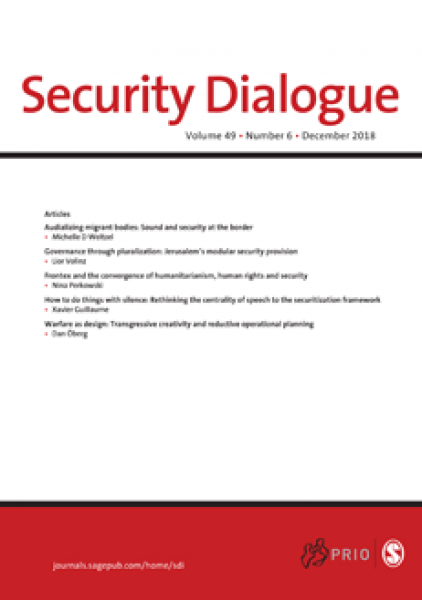Smartening borders in the European Union: an associational inquiry

This contribution asks how the reliance on mass dataveillance of travellers is sustained as a central policy option in the governance of EU border security. It examines this question by analysing a recent initiative of the European Commission proposing the establishment of EU ‘smart borders’. The analysis draws from a set of thinking tools developed by the sociology of association in the field of science and technology studies. The contribution argues that in order to grasp policy outcomes such as smart borders, security studies would benefit from adopting a compositional outlook on agency, where action is seen as the effect of associated entities. Looking at the smartening of EU borders, the article finds that this process is held together by multiple translations and enrolments through which the technical side of dataveillance – platforms, automated gates, matching systems, and so forth – has become associated with the processes of policymaking on border security and sustains the furtherance of mass dataveillance.
| Type | Article |
|---|---|
| Identificateur | urn:issn:0967-0106 |
| Language | En |
| Length | 292 309 |
| Themes |
|
| Discipline(s) |
|
| Publication date | 2016 |
| Notes |
|
| Keywords |
|
| ULB Institutional Reference | http://hdl.handle.net/2013/ULB-DIPOT:oai:dipot.ulb.ac.be:2013/222321 |

